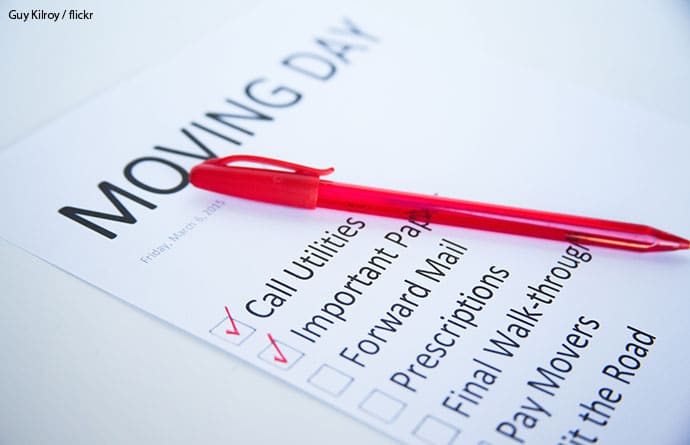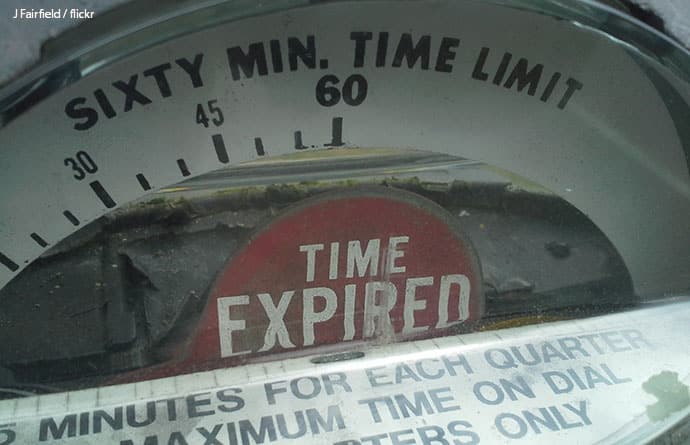
Sadly for all of us, life tends to regularly put us through numerous stressful situations (sometimes on a daily basis!) and from time to time it likes to surprise us with a truly stressful event intended to test our mental strength and to prove to us, once again, that living on this planet isn’t all beer and skittles.
One such life event that is notorious for taking stress testing to another level is the instance of moving house.
Easily regarded as one of the most stressful periods in one’s life, moving to a new home in a new city is a genuinely tough and complex endeavour for a reason – it simply affects too many very sensitive pressure points to go unnoticed.
Even the home movers who boast enviable pressure-handling abilities admit that stress when moving house is not a myth, but rather a devastating storm in disguise that needs to be weathered the right way.
Q: Does moving house cause stress?
A: Definitely.
But the more interesting question is: “Why does moving house cause stress?”
And of course, the more sensible and practical one: “How to reduce stress when moving house?”
Now read on to discover what the most common stress triggers are and how to cope with those stress triggers when moving home.
Why Does Moving Home Cause Stress?

A wide range of pre-move circumstances can actually contribute to a stressful move in your particular case – after all, no two house-moving scenarios are identical.
However personal the reasons may be to force you to move house, there are 5 ever-present stress factors to keep in mind the minute your relocation is confirmed.
Stress factor #1: Money
This is the usual number one stressor while getting ready to move to another home.
First of all, you start worrying whether you will have enough money to cover all the moving expenses.
Then, of course, your worries double as the uncertainty of how much your move will cost you reaches its peak.
Thirdly, once you find a good way to learn the approximate value of your final relocation bill, your anxiety intensifies as you’re trying to provide the necessary sum, plus set up a contingency fund for any unexpected expenses.
As your worries intensify, so does the moving house stress level.
Naturally, the last thing you would want when organising your move is to waste some of your hard-earned money, but having heard of or read about nightmare-like stories of failed house moves, you realise well that your own relocation can easily force you to overspend if you are not careful enough.
Read on to learn some proven ways to manage your relocation budget, and thus make sure you don’t run into financial difficulties, which in turn will escalate the levels of your moving stress.
You may also like to read: 10 Sneaky Ways to Cut the Cost of Moving Home. There are many ways to reduce the overall cost of your home move but in this guide, we look at some not-so-common ways to help you save money on your moving costs.
Stress factor #2: Time

Besides money, another strong stress factor when moving house is time.
Even if your moving budget is large enough to accommodate comfortably all moving-related costs, insufficient time to properly organise and execute your own move can consequently test your ability to stay calm under pressure.
This is especially true whenever the time period between the residential move confirmation and the moving date is too short – a case also known as a last-minute move.
As a result, such an emergency move will force you to prioritize all your pre-move tasks and sacrifice some less essential moving jobs in the name of the overall success of your adventure.
To become a master of your time regardless of how limited it is, you need to have a personalised moving calendar with you at all times to help you keep track of every minute of every hour.
Thus, by keeping your eternal enemy in check, you will see how the moving house stress and anxiety are kept within perfectly reasonable limits.
You may also like to read: How Not to Get Overwhelmed By Home Moving Checklists. When faced with a mountain of home-moving tasks it is easy to get overwhelmed. But in this guide we show you how to personalise a moving checklist, breaking it down into manageable chunks, thereby making them far less stressful.
Stress factor #3: Increased risk for your loved ones
The accumulated moving stress when moving house can easily spike if there’s even a minute risk of the people you love and care about getting hurt in the process.
Understandably, overall relocation safety is your top priority and it is directly linked to the inevitable tension – the more your family members feel protected against accidents and injuries, the fewer worries and causes for concern there will be for you.
If you’re about to move to another house or apartment with small children and/or pets, then it becomes absolutely crucial for you to guarantee their well-being and effectively keep them out of harm’s way.
These precautionary measures are especially true for Moving Day when the tension usually reaches its highest point and when things can go from normal to disastrous in split seconds.
You may also like to read: What is the Most Important Home Moving Task? In this guide, we share a personal story about why staying safe and employing the professionals is the most important home-moving task there is.
Stress factor #4: Excess of household items

Another stress factor that may turn your relocation adventure into a stress-filled disaster is having to pack up and move an extremely large number of household goods accumulated through the years. And if that is the case, it’s no wonder then that merely glancing over the huge excess of house items and personal possessions will cause you to sigh in despair and lower your head in defeat.
However, the real problems are likely to come after you have realised just how many things you have to prepare to be safely shipped to your new residence.
Regrettably, having too much stuff to move will take you on a bumpy round trip and leave you stranded in the very source of your troubles, staring at Factor #1 (money) and Factor #2 (time) just when you thought you had managed to eliminate them for good.
The calculations are simple – more items to sort through and pack safely for moving means much more lost time in the process.
Furthermore, more household goods to move to a new home means higher transportation costs.
You may also like to read: The Epic Guide to Decluttering for a Home Move. In this guide, we go room by room suggesting the best ways to declutter your things as well as how to let go of those sentimental items.
Stress factor #5: Uncertain future
The fact that your moving preparations are leading you towards a largely uncertain future is a good reason to experience the typical moving house stress symptoms.
If you’re excited about the move in general and you know for sure that things will change for the better, then the notorious fear of the unknown will not affect you that much and you will be able to keep your stress level within reasonable and harmless limits.
Even so, essential questions such as
- “How exactly will the relocation to a new home affect me and my family?”;
- “Will I be able to fit in my new job?” (if you have already secured one), or “Will I manage to find the type of job I want?” (if you’re unemployed at the time of your move);
- If you have school-aged children, “Will the new environment affect my kids in a positive way and will they be able to find good friends at school?”
will probably keep you awake at night more and more often as moving day approaches.
It’s a well-known fact that being well inside your comfort zone chases away highly unwanted stressful situations and keeps you calm, relaxed, and confident.
But have a house move scheduled and you suddenly know that you’re leaving that familiar and comforting routine and it’ll be months or even years before you feel at ease once again.
You may also like to read: What is the Fear of Moving Home and How to Overcome It. In this guide, we look at why people are fearful of moving home and how you can overcome those fears.





Share your thoughts by leaving a comment